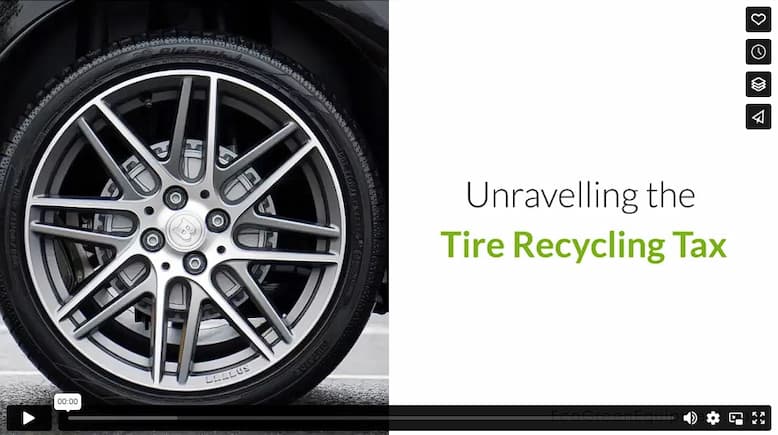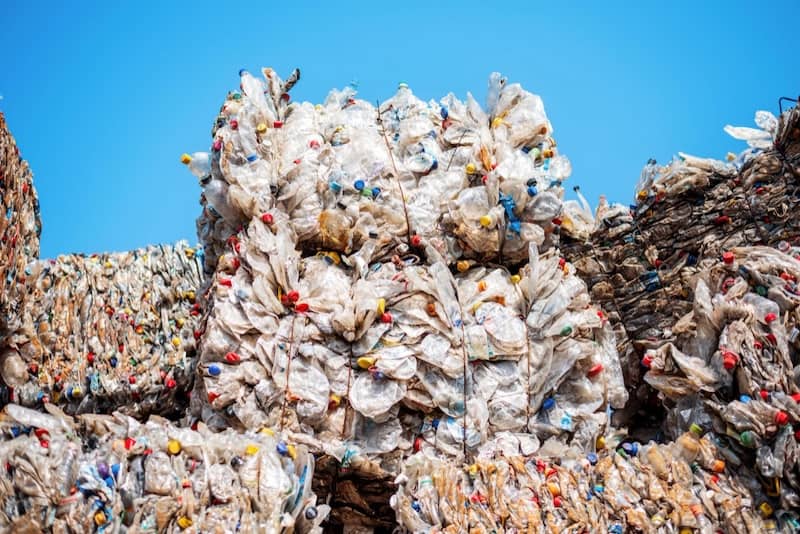Taxes: nobody likes them, but everybody pays them. When you buy food, clothes, or gas, you expect to pay tax on the purchase. Nobody chooses to pay taxes, and most of the time, you probably don’t know exactly where the money will eventually wind up. The tax is just part of the purchase.
The same scenario plays out when you buy new tires for your car. Inevitably, there is a tire tax. The amount varies from state to state. Some states charge a flat fee, which can range from 25 cents to $5 per tire. Other states base the cost on a percentage of the total sale. The cost may even be based on the size of the tire itself, with large construction tires topping out at $10 apiece. It may not always have the same name, but the tax is always there.
Why charge a tax on new tires?
Before there were strict laws governing the disposal and storage of waste tires, these black, rubber rings were piling up across the United States. They legally found their way into landfills and waste yards. They were also illegally dumped in abandoned lots and gullies. Either way, they became a growing concern. Tires never compact or decompose. They sit and rot right where they are left. The question became, “What can we do to change the landscape of waste tire disposal?’
The State of Utah came to this realization in the 1980s, and in 1990, the Waste Tire Recycling Act was introduced. The act added a $1 fee to the purchase of every new tire at the point of sale. Meaning, that every time you buy a tire, whether it be at a car dealership or a body shop or a tire shop, you will pay $1 more for each tire you buy. This fee may sound small. However, with millions of tires purchased every year, the total adds up.
What is the tax used for?
The funds collected from many taxes that we pay come back to us in one form or another. Some tax monies are used to finance schools, improve roads, or pay for emergency services. This tax on tires is no different. The funds collected from each tire provides a benefit to the community by subsidizing the proper disposal and recycling of used tires.
In the case of the Waste Tire Recycling Act, the money collected from the sale of tires is deposited in a controlled account. Tire recyclers can apply for compensation from the account to cover part of the cost of removing and properly processing discarded tires.
Projects qualifying for reimbursement may include clean-up of illegal dumpsites or even the cost of removing and recycling of tires stored in garbage dumps. Although these tires are technically allowed to be stored in these facilities, they are still a problem. Piled up, they harbor pests and can leach harmful chemicals into the ground. The best end solution is to remove them and recycle them into products that can safely be used in other projects.
How effective is the tax at alleviating the problem?
The funds generated have been a welcome boon to tire recyclers, who would otherwise not be able to help. The tax hasn’t solved every problem, but it has gone a long way in keeping our environment cleaner.
By 2019, nearly 20 years after Utah introduced the Waste Tire Recycling Act, the money collected through this program had helped fund the recycling of 47 million tires. In addition, 2.2 million tires were removed from legal stockpiles for proper processing and disposal. In 2018 alone, Utah’s tire fund dispersed $3 million in reimbursements to companies cleaning up dumpsites. These clean-up efforts yielded 46 thousand tons of useful rubber products such as tire derived fuel and crumb rubber.
What other benefits have been observed from the tire tax?
Removing old tires from their dumping grounds not only cleans up that part of the environment, but it has provided products that lead to environmental benefits in other areas. For example, cement producers typically burn coal in their plants. Coal is not only a limited resource, but it produces air pollution when burned. However, with the introduction of more tire-derived fuel (TDF) into the market, these same plants can burn rubber instead of coal.
It is clear that not all the car and truck tires are being recycled yet. As a whole, we are still producing more waste tires than we are recycling. Additionally, there are still many dumping sites across the United States that have not been cleaned up. However, the tire tax is helping to fund necessary waste tire recycling. It is a move in the right direction for us all.
Video





